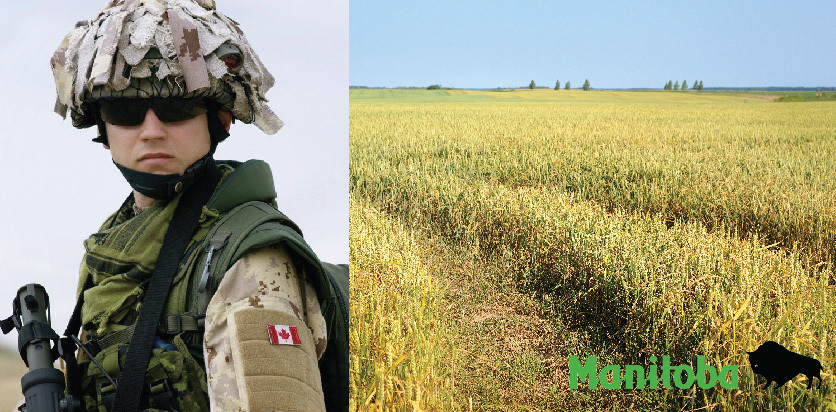Beyond The Uniform
Canadian Agricultural industry launches Operation Ag Careers for Military Personnel
The industry that brings food to our tables is now looking to attract military members as employees. A pilot project soon to be launched by the Canadian Association of Agri-Retailers (CAAR) and the Canadian Agricultural Human Resource Council (CAHRC) will reach out to veterans to join the agriculture industry.
The pilot project, Operation Ag Careers, will be an online resource for veterans to scout out and pick jobs in the agriculture industry best suiting their skills.
Noticing the struggle many agriculture businesses have been facing in the human resources department, Delaney Ross Burtnack, president and CEO of CAAR, has been working on Op Ag Careers since 2013. A chance hiring of a reservist helped to draw Burtnack and her organization, which represents agricultural retailers, to the idea of hiring military members.
“The more we get into it, the more we realize the skill-set that comes from having been in the military is so diverse. The culture, as well, the concept of being rich in family history, strong work ethic, commitment and the ability to be dropped into a situation and figure out how to handle it, those types of skills are what we are looking for in terms of employees, and that is inherently trained in the military,” said Burtnack.
In 2014, CAAR partnered with CAHRC and merged their visions to create a national job board online that features jobs on and off the farm in the agricultural industry. There are currently an estimated 25,000 jobs that need to be filled.
Besides boasting a national job board, CAAR and CAHRC also created an online component to help the nearly 5,000 men and women who retire from the military each year match their specific skills to a job in the agricultural sector. The assessment tool asks potential employees simple questions, keeping the military member in mind, to pair up to a career that might be of interest.
The pilot project is expected to be announced in February with hopes of becoming a national program later this year.
Many of the positions that former members of the CAF can expect to find in the agricultural industry are transferable from the military including accounting, sales, upper and mid-level management, and logistics. According to Burtnack, the logistical field is increasing, and the demand for employees is on the rise.
Veterans can also take up a career in the science and technology side of agriculture. Burtnack says the agriculture industry is amongst the early adopters of technology when it is first released by the military and is currently using GPS mapping and drones.
“People who worked in the military on this technology are obviously the best people in terms of being able to work on it in agriculture as well,” stated Burtnack.
Veterans can expect a wide selection of jobs in the years to come as it is estimated that in the next five years an additional 50,000 jobs will be added as the population grows worldwide.
“Our industry is focused on how we are going to feed nine billion people sustainably by the year 2050 because that’s the projection of the population. There needs to be tremendous growth in the agricultural industry and great people in place in order to do that,” noted Ross.











